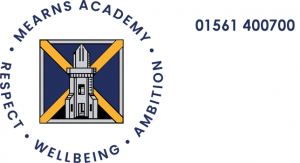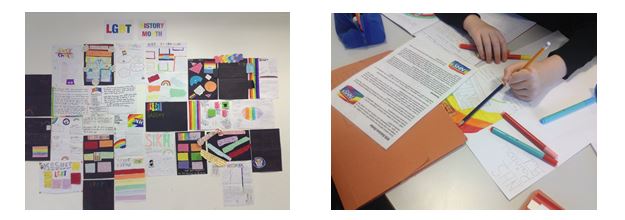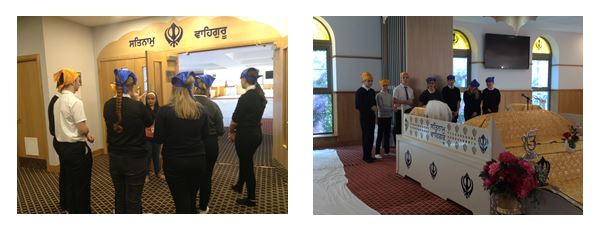Broad General Education
RME is a compulsory subject in S1, S2 and S3. Pupils are given the opportunity to explore values such as justice and compassion; religious diversity; and develop their own beliefs, attitudes and values, such as critical thinking.
S1:
- Introducing Religion and Morals in Scotland
- Islam
- Religion, Society and Sexuality
- Olaudah Equiano – the story of a former slave
- Judaism
S2:
- Hinduism
- Buddhism
- Sikhism
- Global Citizens Poster competition
S3:
- SQA RME Award – Topic of Human Rights and Equality
The Award in Religion, Belief and Values can help pupils to deepen their knowledge and understanding of how religion and values can shape and contribute to the lives of both individuals and communities. This open-ended qualification allows maximum freedom of choice for every pupil, and allows them to choose their own topic, approach to research, method of presentation, and even level of work. Topics have ranged from teenage issues such as self-harm and depression to global issues such as nuclear power, pollution and terrorism.
The award also requires pupils to think about a practical action that will benefit others – at Mearns we do this section through the S3 Equalities Fair, where pupils research their issue and create a stall to raise awareness and sometimes raise money for a charity. This award is available at SCQF levels 3, 4, 5 and 6, which is the equivalent of a Higher piece of work. This makes the Award excellent preparation for the senior phase.
N5, Higher and Advanced Higher
In the senior phase, RME becomes RMPS – Religious, Moral and Philosophical Studies
N5:
- Religion – A critique of Christianity.
- Moral – Morality linked to relationships/sexuality/gender.
- Philosophy – Do miracles happen?
- The assignment is worth 20% of the overall grade, and the exam is worth 80%.
In National 5 RMPS, pupils will investigate key Christian beliefs, practices and sources. They will investigate marriage, gender, family and sexuality as well as contemporary viewpoints. Finally, pupils will investigate the issue of miracles – religious examples and scientific explanations.
Higher:
- Religion – A critique of Buddhism.
- Moral – Morality linked to embryos/organ donation/euthanasia.
- Philosophy – Where did life and the universe come from?
- The assignment is worth 25% of the overall grade, and the exam is worth 75%.
Higher RMPS allows pupils to stretch their knowledge to a much deeper level. Pupils will develop in-depth factual and abstract knowledge of Buddhism and the lives of Buddhists. Pupils will investigate medical practices, always reflecting on the ethical concerns. Lastly, pupils will develop skills to analyse religious and philosophical questions such as faith, reason, creation and science to do with the Big Bang and evolution.
Questions for PT, answered by Mrs McGillivray
- Why do you enjoy teaching your subject?
“I love the topics. They are so relevant to everyday life, and I learn as much from my pupils point of view as they do from me. My absolute favourite is learning about how different other lives can be: perhaps due to them being a Hindu, or because they use a wheelchair, or live in a country with different laws.”
Why should pupils choose to study RMPS?
- How can studying RMPS help pupils in their lives in the future?
“It’s great for any job where you work with people. It makes you more empathetic and understanding. It also sharpens your thinking and helps you cut through any rubbish.”
- What makes RMPS at Mearns Academy better than RMPS elsewhere?
“I don’t think we are better, but I think we are unique. I never want to think I’ve got it sussed. You have to keep changing things up and learning. And I think my interest in equality issues will only grow.”
Pupil Responses
- What is your favourite thing about Higher RMPS?
“The topics are so interesting, especially medical ethics, and it’s nothing like you would get in any other subject. I’m glad I took it.”
- Did you enjoy doing the S3 RME Award? Why?
“I liked that we got to choose our own topics. I think it made me actually want to do the work. We could choose things that we liked or that interested us, which made it way more enjoyable than reading textbooks and things like that.”


